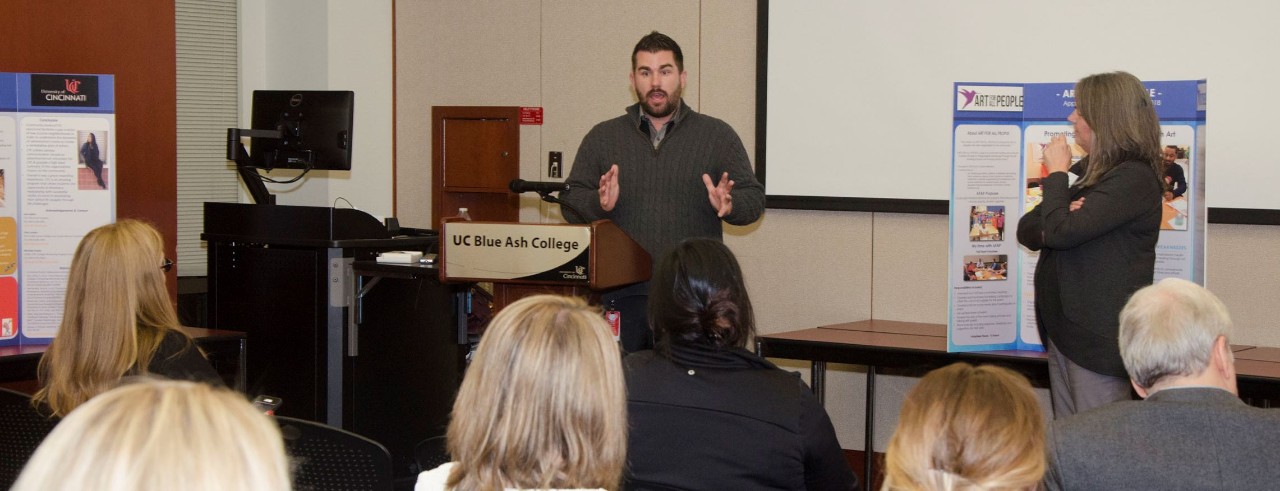
Students apply skills to serve others
When students at the University of Cincinnati Blue Ash College are able to get hands-on learning while also giving back to local organizations, it’s the best of both worlds.
As part of the graduation requirements for the Bachelor of Technical and Applied Studies in Applied Administration (BTAS) program at UC Blue Ash, students must complete a capstone project where they collaborate with a local non-profit organization on an initiative that often ties to their area of study.
The BTAS program offers a broad education with a focus on developing skills that include communication, leadership, strategic planning and team building. It is designed for students or working professionals who have an associate degree in an applied or technical field and want to advance their education.
More than a dozen organizations were involved in this year’s service-learning projects. They include the Freestore Foodbank, Cincinnati Nature Center, Alois Alzheimer Foundation and Matthew 25 Ministries. Projects varied from helping enhance the organization’s website and social media presence to consulting on ways to improve the operations model.
Richard Sirk is a new graduate from the BTAS program who recently completed his capstone project with the Cincinnati Chapter of Little Brothers Friends of the Elderly, a national network of non-profit organizations that help relieve isolation among the elderly.
“The service learning really leverages what we learn in class or through text books,” says Sirk. “It’s a different level of education; you get more value out of it than writing a research paper.”
UC Blue Ash business professor and BTAS program director, Michele Kegley, created the service-learning component for the capstone projects.
“I feel strongly about applying what you learn and using that to accomplish something meaningful,” says Kegley. “Working on these projects may have been the first time our students volunteered, but for most it won’t be the last time.”
Professor Kegley secured funding for a $1,000 Pay it Forward grant, funded by the Elizabeth Ricci Family Fund of Greater Cincinnati Foundation and the University of Cincinnati. The Pay it Forward grant is a student philanthropy initiative sponsored by the Ohio Campus Compact, where students award funds to not-for-profit organizations that are partners in the capstone projects. Based on presentations by students about their projects, the class selected Art for All People and Little Brothers Friends of the Elderly as recipients of the mini-grants. They each received $500.
In an initiative separate from the capstone projects, students in the BTAS Club held a drive in October and November that collected more than 1,800 paper products and personal hygiene items for Operation Give Back, a local non-profit organization that supports underserved families. The items included deodorant, paper towels, soap, shampoo, toilet paper and toothbrushes.
Related Stories
Love it or raze it?
February 20, 2026
An architectural magazine covered the demolition of UC's Crosley Tower.
From research to resume: Grad Career Week prepares students for career paths
February 20, 2026
Graduate students at the University of Cincinnati will explore how their academic and creative work translates into professional success during Grad Career Week, March 2–6, a week-long series of workshops, networking opportunities, and skill-building sessions hosted by the Graduate College.
Social media linked to student loneliness
February 20, 2026
Inside Higher Education highlighted a new study by the University of Cincinnati that found that college students across the country who spent more time on social media reported feeling more loneliness.
